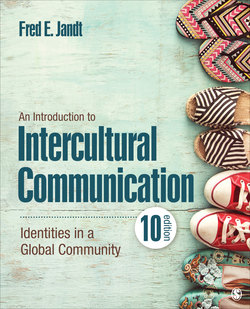Читать книгу An Introduction to Intercultural Communication - Fred E. Jandt - Страница 93
На сайте Литреса книга снята с продажи.
Focus on Skills 2.3 Can Maps Be Racist?
ОглавлениеEven international issues can become local issues. Assume you work in the governor’s office in Virginia. The Virginia legislature passed a bipartisan bill that would require new public school textbooks in the state to note that the Sea of Japan is also referred to as the East Sea. You learn that New Jersey and New York are considering similar legislation.
The legislation was proposed by a Korean immigrant living in Virginia who saw that in his son’s fifth-grade textbook, what he knew to be the East Sea was labeled as the Sea of Japan. Mark Keam, a Korean-American member of the Virginia House of Delegates, said that the labeling reminds Korean-Americans of Japan’s 35-year colonial rule of the Korean peninsula. “When Virginia’s kids are learning history and geography about that part of the world, they should be taught properly that there are two sides of the story.”
Japan’s government hired lobbyists to try to defeat the bill. Ambassador Kenichiro Sasae wrote to Virginia’s governor that “positive cooperation and the strong economic ties between Japan and Virginia may be damaged” if the bill becomes law. After similar bills were introduced in New Jersey and New York, Japan’s chief cabinet secretary Yoshihide Suga called them “extremely regrettable” and pledged a “response through diplomatic channels.” Both Korean and Japanese governments posted old maps and documents online. Korean arguments are that the name East Sea has been in use for hundreds of years and that Sea of Japan was used only when Korea was under Japanese rule. Japanese arguments state that Sea of Japan has been used on maps since 1602 and dismiss East Sea as only a name used locally in South Korea.
1 Now that you understand the relationship between Japan and Korea, how do you advise the governor?
2 What can you do to influence the course of centuries of misunderstanding in order to reduce this communication barrier?
Source: Simon (2014, p. A7).
As the largest minority group in Japan, Japanese-born Koreans are the victims of social, economic, and political prejudice. Japanese law provides little or no protection against the housing and employment discrimination many Japanese-born Koreans experience. In 1974, the National Council for Combating Discrimination Against Ethnic Minorities (Mintohren) was founded by Korean residents and concerned Japanese to fight for the human and civil rights of the Korean residents in Japan.
